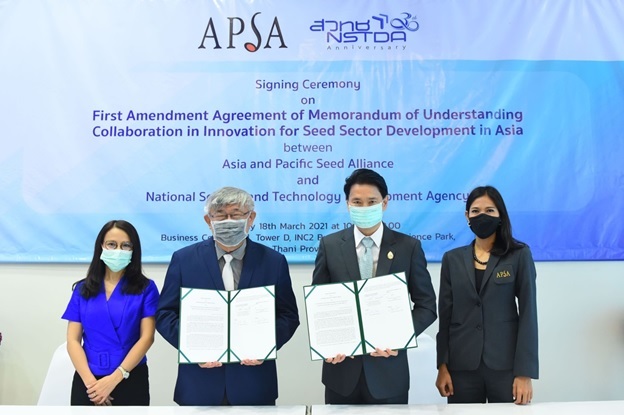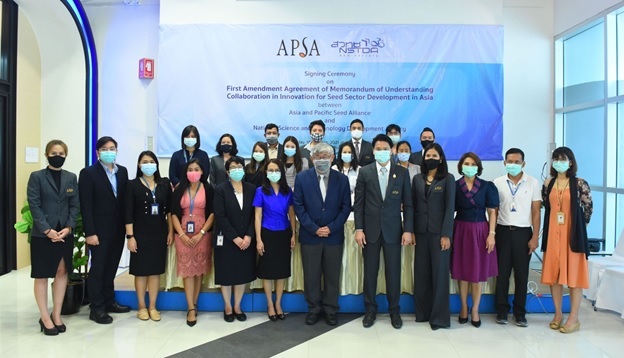NSTDA and the Asia Pacific Seed Alliance (APSA) recently celebrated the MOU extension to support the collaboration in research, development, technology transfer and human resource development in seed technology. The ceremony was attended by executives of the two organizations, namely APSA President Mr. Wichai Laocharoenpronkul, APSA Executive Director Dr. Nanokwan Chodchoey, NSTDA Executive Vice President Dr. Prasit Palittapongarnpim, and NSTDA Senior Division Director Ms. Wannipha Tongsima.

Since the establishment of collaboration in July 2019, NSTDA and APSA have engaged in a number of joint activities including NSTDA’s participation in the 26th Asian Seed Congress (ASC2019) in Malaysia hosted by APSA in which NSTDA’s National Omics Center put up an exhibition and the Third Asian Solanaceous Round Table (ASRT) 2019 in India in which two of NSTDA researchers presented their research work on a detection test for plant pathogen and tospovirus disease. A joint research project to perform screening for tomato necrotic ringspot virus (TNRV) and capsicum chlorosis virus (CaCV)-resistant sources in tomato and pepper germplasm has been agreed upon in the meeting. This project is expected to start this year and continue to 2023.
An extension of the partnership to 2027 will allow both parties to engage in a long-term collaboration, especially in research which will enhance the capacity and competitiveness of Thai seed industry. The partnership also helps attract more local and international collaborators. For instance, the joint research on screening for disease-resistant sources in tomato and pepper germplasm will be joined by Kasetsart University, Khon Kaen University, Mexico State University and the World Vegetable Center. This project, in particular, will speed up the breeding process for quality seed with disease resistance for commercialization.

